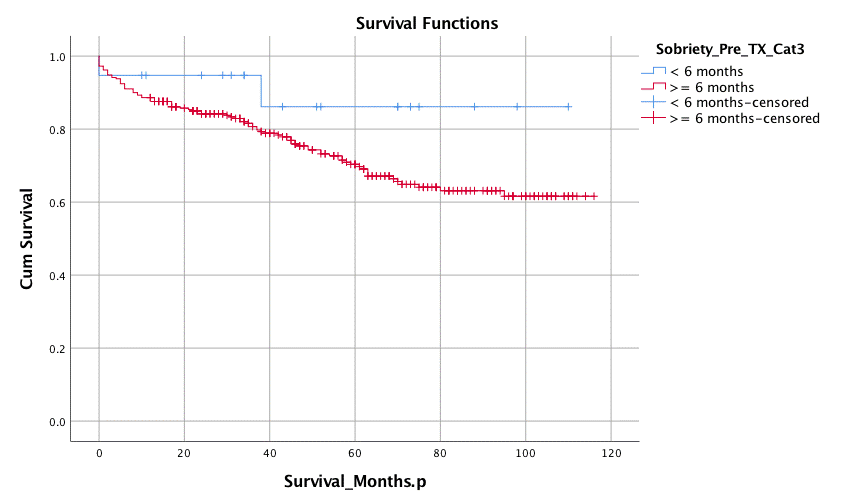ALcohol Relapse after Liver Transplantation
B. Movahedi, p. Mahboub, P. Martings, A. Bozorgzadeh
Surgery, UMass Memorial Medical Center, Worcester, MA
Meeting: 2019 American Transplant Congress
Abstract number: D305
Keywords: Alcohol, Liver cirrhosis
Session Information
Session Name: Poster Session D: Psychosocial and Treatment Adherence
Session Type: Poster Session
Date: Tuesday, June 4, 2019
Session Time: 6:00pm-7:00pm
 Presentation Time: 6:00pm-7:00pm
Presentation Time: 6:00pm-7:00pm
Location: Hall C & D
*Purpose: Alcoholic liver disease is a very common diagnosis among the patient’s population referred for liver transplantation. There are a number of different evaluation criteria used in the liver transplantation centers in order to assess the risk of alcohol abuse relapse after transplant in patients with a history of alcohol abuse. The most worldwide criteria used in many transplant centers is a minimum of 6-month sobriety prior to liver transplantation which means the patients with a history of less than 6-month sobriety have less or even no chance to receive liver transplantation and it is assumed they are at higher risk of relapse after transplant. In this study, we aimed to investigate whether 6-month sobriety criteria before transplantation is a predicting factor for relapse after liver transplantation.
*Methods: We included the patients with a history of alcohol abuse which underwent liver transplantation between 2009-2017 in UMass Memorial Medical Center. The patients were divided into two groups 1. Less than 6-months sobriety and 2. Equal or more than 6-month sobriety from alcohol pre-transplant. The groups were compared regarding the patient’s demography, Meld score, donor risk index and incidence of alcohol relapse post-transplant. The data is reported as median±interquartile range and the p values were calculated using Mann-Whitney and Chi-square statistical tests. Kaplan Meier was applied to analyze the patient’s survival grafts in both groups.
*Results: In total 309 patients with the history of alcohol abuse pre-transplant were included. There were 19 patients in the group one and 290 patients in group two. In total 65 out of 309 patients relapsed with alcohol abuse post-transplant (21%) with no significant difference between the two groups (p=0.188). There was no significant difference between the two groups regarding gender and race of the patients (p≥ 0.05). The patient’s age in the first group was significantly lower (48±16) compared to the second group (56±9) (p=0.001) along with significantly higher Meld score at transplant (35±13) in the first group compared to the second group (22±14) (p=0.00). We did not find any difference regarding donor criteria such as donor risk index (p≥0.05). There was no significant difference in patients’ survival rate between the two groups (p=0.147) (Figure 1).
*Conclusions: This study indicates that the patients with less than 6-month sobriety pre-transplant were not in higher risk of alcohol relapse while they were in greater need of liver transplant as indicated by higher meld score compared to the group with sobriety equal or more than 6-month. Our data suggests that 6-month sobriety is not predictable of relapse after transplantation and patients referred for liver transplantation with alcoholic cirrhosis diagnose need more comprehensive evaluation.
To cite this abstract in AMA style:
Movahedi B, Mahboub p, Martings P, Bozorgzadeh A. ALcohol Relapse after Liver Transplantation [abstract]. Am J Transplant. 2019; 19 (suppl 3). https://atcmeetingabstracts.com/abstract/alcohol-relapse-after-liver-transplantation/. Accessed February 15, 2026.« Back to 2019 American Transplant Congress

